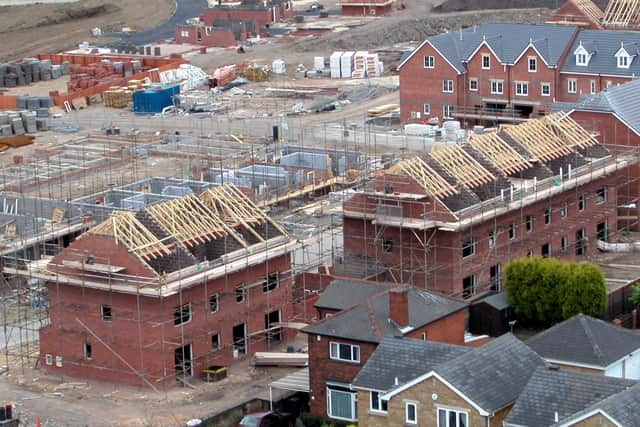Government to focus housebuilding away from rural areas
The Prime Minister last night said that the Government will hit its target of one million homes between 2019 and the end of next year.
Later today Mr Sunak and Michael Gove, the Levelling Up Secretary, are due to announce further details of planning reforms as the Conservatives look to recover from the loss of two by-elections last week.
Advertisement
Hide AdAdvertisement
Hide AdThe plans will look to prioritise the building of housing in cities, rather than in rural areas which it claimed would be an “uncontrolled sprawl concreting over the countryside”.


“Today I can confirm that we will meet our manifesto commitment to build one million homes over this Parliament,” said Mr Sunak.
“That’s a beautiful new home for a million individual families in every corner of our country.
“We need to keep going because we want more people to realise the dream of owning their own home.
Advertisement
Hide AdAdvertisement
Hide Ad“We won’t do that by concreting over the countryside – our plan is to build the right homes where there is the most need and where there is local support, in the heart of Britain’s great cities.
“Our reforms today will help make that a reality by regenerating disused brownfield land, streamlining the planning process and helping homeowners to renovate and extend their houses outwards and upwards.”
It comes after the Prime Minister ditched mandatory housing targets in order to see off a rebellion of Tory MPs.
Parliament’s cross-party Levelling Up Committee found that the Government was not on target to deliver 300,000 new homes a year by the mid-2020s, with Clive Betts, the committee’s chairman, warning that the scrapping of targets was “already having a damaging impact on efforts to increase the building of new homes”.
Advertisement
Hide AdAdvertisement
Hide AdMr Gove is due to announce plans to cut red tape around making new homes by converting shops and takeaways, as well as making it easier to add extensions and lofts to existing buildings.
Inspired by the regeneration created in east London by the Docklands Development Corporation in the 1980s, Mr Gove said his plans are to kick-start a “21st century renaissance for our great cities”.
The decision to focus on new housing in cities comes after warnings earlier this month of the shortage of affordable housing in rural areas.
Analysis by the National Housing Federation found that between 2019 and 2022 the social housing waiting lists for rural areas grew by almost a third (31 per cent), compared to only 3 per cent in urban areas.
Advertisement
Hide AdAdvertisement
Hide AdLisa Nandy, Labour’s shadow housing secretary, said: “It takes some serious brass neck for the Tories to make yet more promises when the housing crisis has gone from bad to worse on their watch, and when housebuilding is on course to hit its lowest rate since the Second World War because Rishi Sunak rolled over to his own MPs.
“We don’t need more reviews, press releases or empty promises, we need bold action to get Britain building.”
Ms Nandy has already announced plans to make it easier to build on unsightly parts of the greenbelt under a future Labour government, and a pledge to restore the 300,000 homes target.
The Local Government Association (LGA) has flagged concerns about the prospect of loosening the rules around permitted development rights, arguing it can lead to substandard housing.
Advertisement
Hide AdAdvertisement
Hide AdCouncillor Shaun Davies, chairman of the LGA, said: “Further expanding permitted development rights risks creating poor quality residential environments that negatively impact people’s health and wellbeing, as well as a lack of affordable housing or suitable infrastructure."